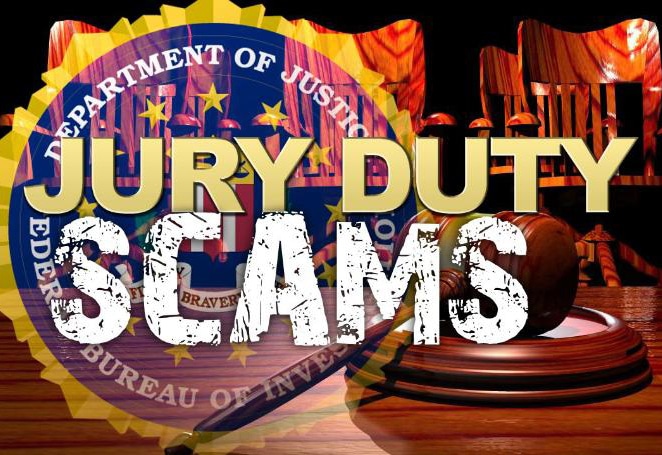Jury duty scams are showing up with increased frequency around the U.S. in the past month. Although jury scams have been around for years, scammers continue to target victims through email or phone calls. These criminals often impersonate a court or law enforcement official, such as a sheriff’s officer or a U.S. Marshal claiming that the victim failed to appear in court for jury duty.
These scammers threaten the victims with arrest unless they pay a hefty fine via wire or bank fund transfers or money orders. In these instances, criminals threaten victims with prosecution for failing to comply with jury service in federal or state courts.
How jury duty phone scams are perpetrated
You get a phone call early in the morning when your defenses are down and thinking may be slower. The caller makes threats, such as fines or imminent arrest. The caller won’t provide a number where he/she can be reached. These are red flags that should alert you to a likely jury scam.
Scammers most often use prepaid phones or caller ID spoofing, which makes it look like the call is coming from a local law enforcement agency or court office. They’ll even go as far as to leave a call-back phone number that plays a phony recording sounding similar to the real one played at the courthouse.
When the call recipient states that they never received a jury duty notification, the scammer will request confidential information for “verification purposes,” pressuring the victim to provide confidential data. This can potentially lead to identity theft and fraud. The jury scammer may request:
- Social Security Number
- Date of Birth
- Driver License Number
- Mother’s Maiden Name
By catching victims off-guard and using scare tactics, the scammers can get everything they need to commit identity theft.
Jury duty email scams work in a similar way
Jury duty email scams use a similar approach to the phone scams, where scammers claim that victims missed jury duty and request personal information to resolve the issue. The individual may receive an email claiming they have been selected for jury duty service and are instructed to return an attached online form. The form may request personal information such as Social Security number, date of birth, driver’s license number, and mother’s maiden name. Additionally, the email may state that anyone who fails to provide the information would have to report to court and could face fines and jail time.
The jury email scams work by appearing as if they come from the National eJuror Program, an official online registration program used in about 80 U.S. district courts. However, these fake emails are in no way connected to the actual eJuror program.
How to recognize jury scams
Fortunately, there are a few ways to know if you are being targeted by a jury duty scam. If you receive any correspondence from a court, keep the following information in mind. It will help you determine if it is a scam or not:
- eJuror, the legitimate online jury registration program, never asks that confidential information is sent directly by email.
- Federal courts always use postal mail to contact prospective jurors.
- Social Security numbers are never required when completing online jury forms.
- Court workers will never call to ask for Social Security numbers and other confidential information.
- Most courts follow up via regular mail and rarely, if ever, call prospective jurors.
- Federal courts do not require you to provide sensitive information over a telephone call.
- Court workers will never call you to tell you if you missed jury duty.
- Furthermore, the National eJuror Program issues this warning about jury scams.
Remember: Genuine communications about jury duty will come via the United States Postal Service, not by phone or email. And, court officials will never ask you for sensitive information. If someone claiming to represent the government or the private sector calls or emails from out of the blue and asks for payment in this manner, you can be sure that they are trying to pull off a scam. Just hang up or hit delete.
What to do if you’ve been targeted by a jury scam
If you gave your personal information to a jury duty scammer, or if you suspect you’ve been targeted by one, take the following action:
- Contact your credit card company or bank immediately if you notice anything suspicious.
- Monitor your credit report, and report any fraudulent activity to the Federal Trade Commission.
- Contact the clerk of court’s office at your nearest district court to notify them of the scam.
Educate yourself for cybersecurity preparedness
Awareness and education are excellent ways to avoid becoming a victim of jury scams and other phishing attacks. Global Learning Systems provides phishing training to help your business reinforce its Human Firewall®. Contact us for training that will protect both your business and your employees from harmful phishing attacks.



